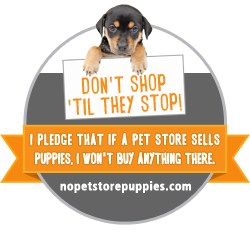Is My Blog Copyrighted?
January 16, 2011 5 Comments
If even fleeting, the issue of copyright can strike the mind of many of us who post our thoughts, opinions, work, research and information online. Who can use it or share it? And to what extent? What rights extend to my intellectual property?
Well, first I’ll do away with the issue of plagiarism, which is simply someone taking something you’ve written and posting it as their own. It’s wrong ethically and legally, and while hard to pursue online, you can often seek retribution simply by having the plagiarized content removed (forcefully or not). Anyone with post-secondary research experience should have had the fears of plagiarism planted deep, and there are many ways to prevent the suggestion that someone else’s idea is your own by making reference to quotes and proper citations, or hyperlinking back to the original material.
But copyright does not just mean taking credit for someone else’s work; it also relates to unauthorized use and reproduction. Hence those copyright warnings at the beginning of DVDs – we do not have permission to duplicate the movies fully. Such is the case with published books. You can’t go purchase the latest best seller and take it to Staples to photocopy the whole thing and distribute it to friends (I have doubts photocopying would be significantly cheaper, but you couldn’t scan it either). This process impacts the financial gain the writer/publisher receives from the publication, and they could reasonably seek recovery in the form of costs from you for this action. Fair enough – you’re stealing.
On the other hand, you are allowed to copy excerpts and quotes from publications without having to pay for them as long as you’re using it for reasons considered “fair use”. Fair use qualifications include commentary, criticism, parody, research, news and education.
So what about my blog? I’m not a published author; do I have these rights?
I sure do. According to this super helpful website, everything is copyrighted essentially as soon as it’s written. Canada, the United States, and many other countries follow the Berne Copyright Convention, giving authors and artists immediate protection for their work, my blog included. WordPress and other hosts offer an option to include a copyright notice on posts and pages, which will serve as a helpful reminder to anyone tempted, but isn’t strictly necessary. The only way you’re not covered is if you specifically denote your work to be public domain. And just because something is online does not mean it’s public domain.
Personally, plagiarism, yes, would bother me; I put the work in and I want credit for it. If you find a way to capitalize on something I’ve written, kudos, but I want the benefit, and I’m not inclined to share. And credit is easy to give. You can even recopy a whole post of mine if you like, as long as you link back here or give my blog credit (though I do know many bloggers strictly opposed to complete entry recreations whether or not they get credit, so make sure you check for a policy before reposting an entire work of someone else). To give credit to an original author is a simple request – and an obligation. Heck, you can take a post of mine, break it down, criticize it extensively, and I’m happy as long as my words remain my own. I’ve even got one post where I’m asking you to copy the whole thing and sign your name to the bottom, and please feel free to do so. Thankfully, I’ve not yet experienced a need to be concerned about plagiarism, which either means people are generally very respectful and diligent, or perhaps that I need to up the ante in quality (mimicking is the sincerest form of flattery as they say).
What About Facebook?
Before I started the Soapbox, I used Facebook Notes to post my entries. Do I own that or does Facebook?
Well, Facebook Terms of Use seem to be ever-changing these days, with increasing privacy concerns and copyright concerns (especially about photos, it seems).
The first order of business, and self-protection due diligence, is privacy. If you don’t want everyone to access your information or ideas, observe how you share them. Check your personal settings and consider where you’re posting: public groups, applications, a friend’s page, a public figure’s page, etc. If you don’t want just anyone to access something you’ve got to say or share, you yourself are the first step of appropriately managing your own affairs.
As I read the current Facebook policies, it seems that our ideas and work remain our own and there is a system in place for Facebook to maintain that. If you feel a third party has infringed on your copyright, there is a complaint process in place, and it does not seem that Facebook automatically takes ownership of anything you post there.
But what happens if I were to devise the most clever status update ever, and everyone copies it, but I want all the credit? Well, tough.
First of all, get a life.
And secondly, at the time of writing, the Facebook policies specifically state (and as a user, you’ve consented even to these policies if you didn’t bother to read them) that “You understand that information might be reshared or copied by other users”.
Furthermore: “Information set to ‘everyone’ [such as in a public group or celebrity profile] is publicly available information, just like your name, profile picture, and connections. Such information may, for example, be accessed by everyone on the Internet (including people not logged into Facebook), be indexed by third party search engines, and be imported, exported, distributed, and redistributed by us and others without privacy limitations. Such information may also be associated with you, including your name and profile picture, even outside of Facebook, such as on public search engines and when you visit other sites on the internet. The default privacy setting for certain types of information you post on Facebook is set to ‘everyone.’ You can review and change the default settings in your privacy settings. If you delete ‘everyone’ content that you posted on Facebook, we will remove it from your Facebook profile, but have no control over its use outside of Facebook.”
So there you have it. I could take your hilarious status update, post it as my own or even post it on Twitter without giving credit and that’s just something you’ve consented to by my being able to view it and copy it in the first place. This is how the 24 hour news cycle is able to quote posts on pages, profiles, and groups – and even Twitter. What this has to say about the quality of journalism there is another issue altogether. And if you are given credit by name, then you really have no complaint, as the plagiarism aspect is removed and you really have no copyright.
And this is why I started the blog. My copyright here is much more secure than my Facebook Notes, with the added benefit of expanded readership without having to add hundreds of thousands of Facebook friends. Thankfully, my Facebook Notes only really included topics like canine bloat, which is really information I’d like to get out there as much as possible, with credit and acknowledgement being a fringe benefit.
And Twitter?
Good question.
Luckily, the re-tweet option generally means you will receive credit for your tweets.
The Twitter Terms of Service state that your content is your own responsibility (you own it, but the consequences of it are also yours). But while your tweets are always yours, by using Twitter you’re also giving Twitter a non-exclusive right to copy, reproduce, and distribute them.
While an argument may be out there that the 140 character limit of Twitter excludes tweets from the length and creativity requirements for copyright, the Twitter policies acknowledge that tweets are intellectual property of the user, and they do have a complaint process in place for anyone suspecting plagiarism. However, I think unauthorized use is a non-existent complaint considering the nature of Twitter itself and the re-tweet function. You would spend more in legal fees arguing that than would be worthwhile.
So there you have it: social media copyright as I understand it. The bottom line is often to remember that there are real people behind those screen names, so real life standards apply to online actions. No, I don’t have an LL.B. behind my name, so don’t quote me if you’ve got a serious legal issue. That’s not a copyright concern; I’m just clarifying my lack of liability (look what our litigious society has come to).










Pingback: Tweets that mention Is My Blog Copyrighted? « Back Alley Soapbox -- Topsy.com
Thanks for posting…I always wondered about copyright when blogging, tweeting, etc…
Awesome post. Do you mind if I ask what your source is for this information?
Thanks for posting the link to this on my comments. If you don’t mind, I will be linking to it on my FUF post.
Don’t mind at all! I’m happy if it’s found useful.